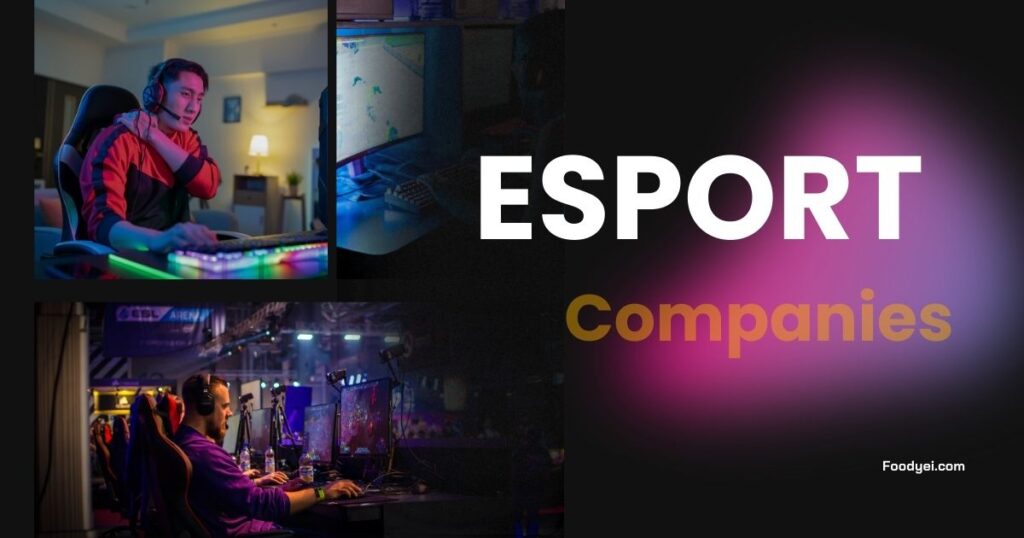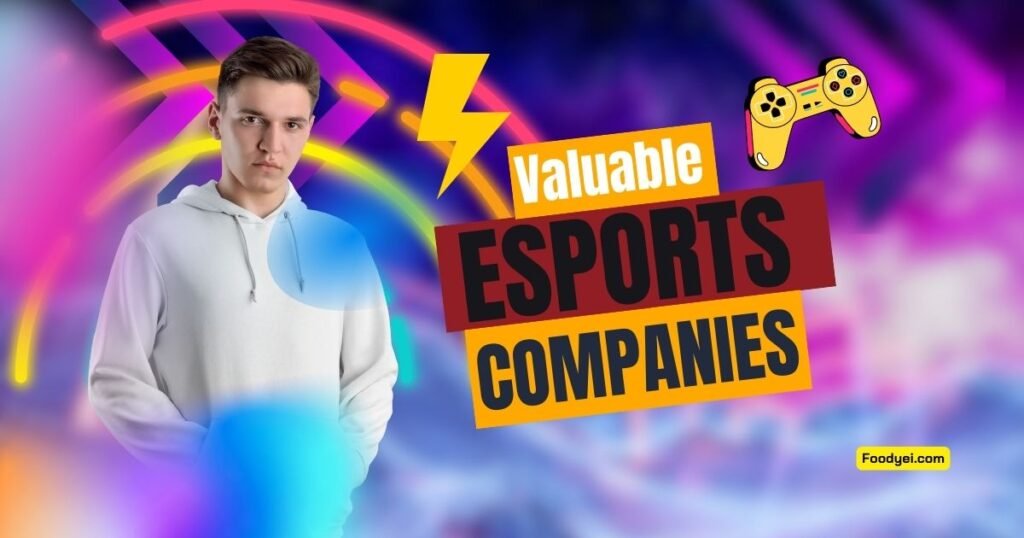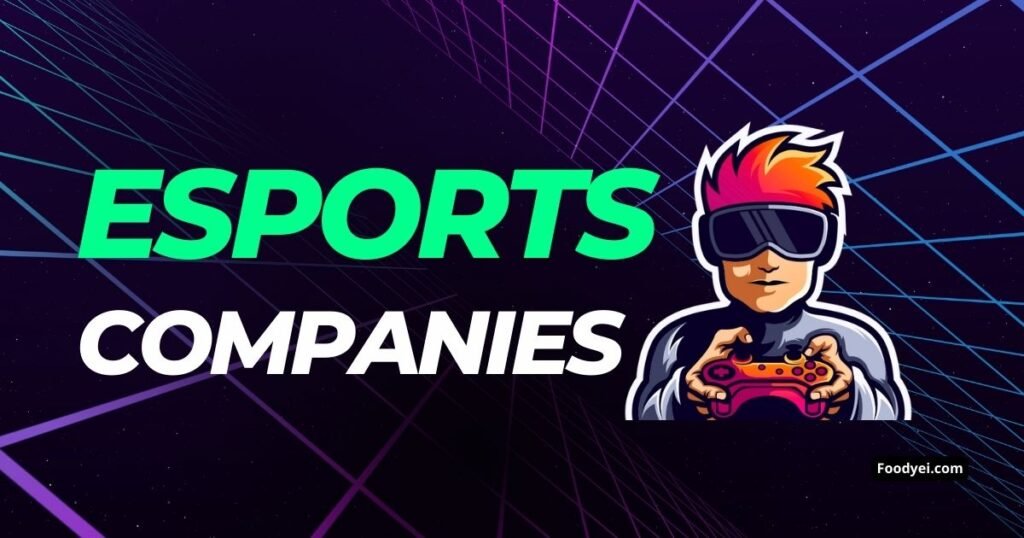Competitive gaming continues to grow, leading to surging revenues and valuations for major players in the esports industry. This article will dive into the most valuable esports companies as of 2024 based on market capitalization, providing an overview of each organization’s history and impact on electronic sports.
20 Most Valuable Esports Companies Are

Tencent ($449 Billion)
Chinese tech giant Tencent dominates gaming and esports in Asia. Founded in 1998, it is now the world’s largest video game publisher. Tencent owns Riot Games, developers of the globally popular esports title League of Legends.
The company runs some of China’s biggest tournaments and leagues for LoL, Honor of Kings, PUBG Mobile, and more. In 2021, Tencent consolidated its esports activities under the new Tencent Esports brand.
Microsoft ($3 Trillion)
Microsoft became an esports titan by acquiring Activision Blizzard for nearly $70 billion in 2023. This brought major competitive titles like Call of Duty, Overwatch, and World of Warcraft under Microsoft’s umbrella.
Activision Blizzard has operated extensive leagues and events for these games for years. Microsoft looks to expand its gaming infrastructure even further.
Sony ($91.91 Billion)
Sony is a pillar of console esports through its iconic PlayStation brand. Top competitive titles like Street Fighter V, Call of Duty, and Gran Turismo rely on PlayStation for tournaments.
Sony sponsors teams and causes and is developing original esports content based on PlayStation IPs. Their console install base gives Sony tremendous influence.
Amazon ($1.8 Trillion)
Amazon became a major esports player by acquiring leading live streaming platform Twitch for $970 million in 2014. Twitch is now the top destination for streaming esports events and matches. Amazon also provides cloud infrastructure for tournaments worldwide via AWS.

Nintendo ($58.87 Billion)
After historically avoiding esports, Nintendo has embraced competitive gaming in recent years. The company sponsors tournaments for games like Super Smash Bros, Splatoon 2, and Mario Kart. In 2018 Nintendo developed Super Smash Bros Ultimate specifically for esports. The Nintendo Switch also features strong indie esports titles.
Valve ($10 Billion)
Beloved game developer Valve created two of the most popular competitive titles in Dota 2 and Counter-Strike: Global Offensive (CS: GO). The annual Dota 2 championship The International holds the record for the largest esports prize pool at over $40 million. CS: GO also has a thriving pro league and over $87 million awarded to Valve-sponsored majors.
Epic Games ($31.5 Billion)
Epic exploded into esports by committing $100 million to Fortnite competitive prize pools in its first year, putting it beside the biggest esports. Epic also develops Rocket League, one of the most popular independent competitive titles. Epic is heavily involved in leagues and events for both games.
Electronic Arts ($33 Billion)
Publisher EA is behind leading esports franchises including FIFA, Madden NFL, Apex Legends, and Battlefield. FIFA in particular has an enormous competitive scene in Europe and Latin America. Apex Legends recently launched its first professional league managed by EA, continuing the company’s esports push.
NetEase ($63 Billion)
Chinese internet and gaming giant NetEase operates some of Asia’s biggest mobile and PC competitive titles including Free Fire, Identity V, Minecraft, Starcraft, and Overwatch. NetEase invests heavily in local esports leagues and tournaments. They committed over $432 million to esports in 2019 alone.

Garena ($37 Billion)
Singaporean publisher Garena exclusively licenses League of Legends in Southeast Asia. They run 20 professional LoL leagues under their ONE Championship umbrella, and also develop talent through regional developmental leagues and academies. Garena partnered with YouTube in 2019 for global live streaming.
Modern Times Group (MTG) ($1.6 Billion)
MTG, based in Sweden, owns ESL Gaming, one of the largest esports tournament organizers worldwide. ESL runs prestigious events in CS: GO, Dota 2, Starcraft, and more. In 2015, MTG acquired a majority stake in ESL’s parent company for $87 million, cementing its leadership in esports.
Supercell ($11.5 Billion)
Supercell is a Finnish mobile developer behind two of the biggest mobile esports – Brawl Stars and Clash Royale. Both games have enthusiastic professional scenes across Asia, Europe, and North America. Supercell directly funds tournaments and leagues, having awarded millions in prize money.
Activision Blizzard ($74 Billion)
Activision Blizzard was acquired by Microsoft in 2022 but remains an esports titan. The company created legendary competitive franchises like Call of Duty, Overwatch, Hearthstone, and World of Warcraft. Each has extensive professional leagues, media deals, and huge cash prizes funded by Activision Blizzard.
Google ($2100 Trillion)
Google entered esports in 2015 by launching the live-streaming platform YouTube Gaming. It has become a top destination for esports content and event streaming. YouTube also sponsors major tournaments like the Overwatch League Grand Finals.

Spotify ($59 Billion)
In 2022 Spotify acquired Brazilian gaming company Gamers Club, making a big move into esports and gaming content in Latin America. This brought a network of streamers and influencers into Spotify’s fold. Spotify appears poised to continue expanding into the esports market globally.
Nexon ($23 Billion)
South Korean firm Nexon is a pioneer in online and mobile gaming, developing titles like MapleStory, Dungeon Fighter Online, and FIFA Online which have become esports staples in Asia. Nexon has operated domestic esports leagues in Korea for over 15 years. The company specializes in eastern markets.
NCSoft ($3.03 Billion)
NCSoft is another major South Korean game publisher behind esports hits like League of Legends, Blade & Soul, and Guild Wars 2. The company has invested heavily in leagues and tournaments for these titles in Korea and China. NCSoft focuses primarily on PC and mobile esports in Asian markets.
Capcom ($7.17 Billion)
Legendary Japanese developer Capcom is behind iconic esports fighting games Street Fighter and Tekken. Both titles have prestigious pro circuits featuring top players from around the world competing for money and glory. Capcom supports the professional scene through sponsorships and input on game design.
Ubisoft ($3.07 Billion)
French gaming giant Ubisoft entered esports by establishing the Rainbow Six Pro League in 2016. The league helped their tactical shooter Tom Clancy’s Rainbow Six Siege become a top esports. Ubisoft also incorporates esports-friendly elements into other major franchises like Assassin’s Creed.
Gamevil Com2Us ($7 Billion)
Gamevil Com2Us is a leader in mobile esports, publishing smash-hit titles like Summoners War and FIFA Mobile in Asia. The company operates championships for its games with millions in prizes and routinely sponsors major esports events in Korea. As mobile competitive gaming grows, Gamevil Com2Us stands ready to capitalize.
FAQ
What is driving growth for esports companies?
Key factors include live streaming platforms, mobile gaming, games designed for esports, sponsorships, and investments, expanding audience demographics, pop culture crossovers, and recognition from traditional sports leagues.
How are esports company valuations determined?
Valuations are based on audience reach, title portfolio strength, IP ownership, revenue streams, league/tournament operation capabilities, partnerships, growth potential in the booming esports market, and overall brand strength.
What types of games make good esports?
MOBAs, shooters, battle royales, sports sims, and fighting games tend to excel as esports due to inherent competitiveness, team dynamics, and spectator friendliness. Accessibility on both PC and mobile is also key.
Which companies run the top esports leagues?
Top esports league operators include Riot Games, Activision Blizzard, Valve, Nintendo, Garena, ESL, and traditional sports bodies like NBA, NFL, and FIFA. First-party developers often manage leagues for their titles.
What regions dominate esports?
China, North America, and South Korea are major esports hubs. But the scene is global, with Europe, South America, Southeast Asia and others making up a growing share of audience, revenue, and talent.




